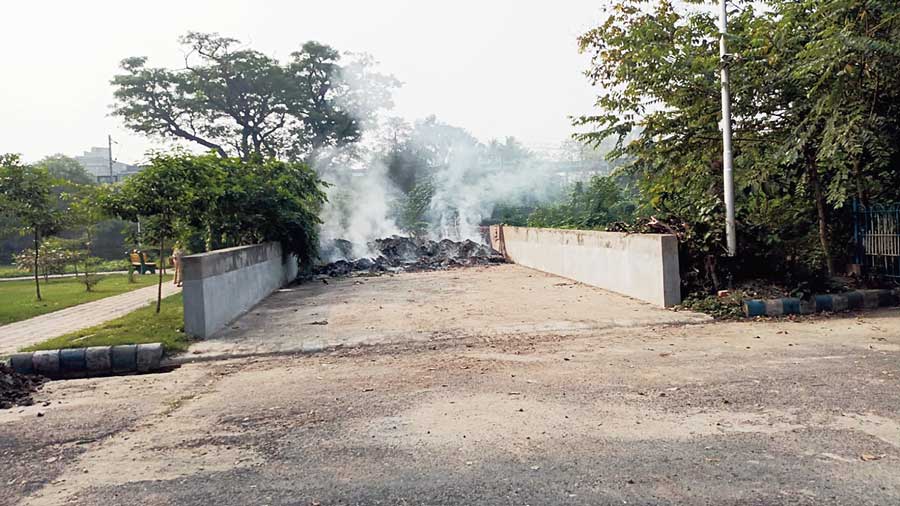A heap of garbage containing mostly dry leaves was found burning on the Rabindra Sarobar premises on Thursday morning, raising suspicion among regular visitors that it was intentionally set on fire by people who are supposed to remove daily waste from the Sarobar.
The fire was noticed around 7.30am. It was doused by security personnel.
Open burning is banned across the city and it invites penalty from those who are caught burning waste. But a government agency — Kolkata Metropolitan Development Authority (KMDA) — itself is the custodian of the Rabindra Sarobar.
“We have heard that some dry leaves were found burning inside the Sarobar. We are checking how this happened and we will try everything to ensure that it is not repeated,” said a senior official of the KMDA, who spoke on condition of anonymity.
The smoke causes air pollution including release of fine particulate matters that can enter the human lungs and cause respiratory ailments.
Probir Kumar Ghosh, a resident of Sarat Chatterjee Avenue, the road running between the Sarobar’s boundary and Menoka cinema, spotted the fire. “There was a lot of smoke. I saw heaps of waste burning,” said Ghosh, a retired professor of mechanical engineering at Jadavpur University.
“Last year also, a fire had broken out in a heap of garbage around Durga Puja. The smoke emanating from the fire was so much that fire tenders had to come to douse the flames.”
Sumita Banerjee, a regular visitor to the Sarobar, alleged that the dry leaves and waste were dumped in open vats built inside the Sarobar and left to accumulate for days.
“Every time a fire breaks out, KMDA officials say it is an accidental fire or someone threw a lighted cigarette. But if waste is cleared regularly the fire will never happen,” she said.
“Who knows whether those responsible for clearing the waste set the fire or not. KMDA should sensitise workers that they should not burn waste and take action if they do not follow it,” said Banerjee.
The practice of waste burning releases ultra-fine particles, including PM2.5 (so called because they are smaller than 2.5 micron in size), which can enter deep crevices of the lungs and trigger a host of critical ailments.
The particles float in the air close to the ground for a long duration during winter. Since air close to the ground is cold, it does not rise up and get replaced by fresh air. As a result, the emitted particles remain trapped close to the ground and enter the lungs.
In the Rabindra Sarobar, the smoke from the fire can also drive away many birds that live there. Several migratory birds that come to this part of the country escaping areas with harsh winter have also been spotted at the Rabindra Sarobar in recent years.
